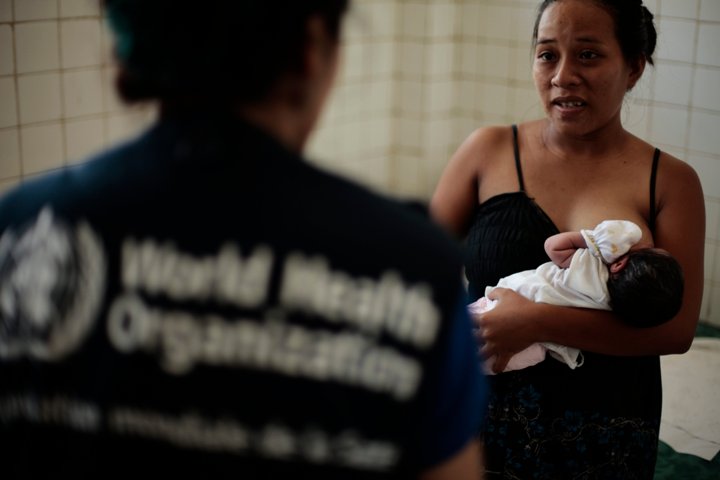WHO and UNICEF Call for Urgent Action to Prioritize Breastfeeding Support Globally
Breastfeeding is universally recognized as one of the most effective ways to ensure a baby’s health, development, and survival during the critical first months of life.

As World Breastfeeding Week is marked around the globe, the World Health Organization (WHO) and UNICEF are sounding the alarm on the urgent need to invest in high-quality breastfeeding support systems. With the theme “Prioritise breastfeeding: Create sustainable support systems,” this year’s campaign highlights both the life-saving benefits of breastfeeding and the gaps in support that millions of mothers still face.
Breastfeeding: The First Vaccine and a Foundation for Life
Breastfeeding is universally recognized as one of the most effective ways to ensure a baby’s health, development, and survival during the critical first months of life. Acting as a baby’s first vaccine, breast milk contains antibodies and essential nutrients that protect against life-threatening diseases such as diarrhoea and pneumonia, which are among the leading causes of death in children under five.
“Investing in breastfeeding is an investment in the future,” WHO and UNICEF emphasize. Yet, global rates of exclusive breastfeeding remain stubbornly low. Only 48% of infants under six months are exclusively breastfed, well short of the World Health Assembly’s target of 60% by 2030.
Barriers to Breastfeeding: Gaps in Health Systems and Support
Multiple challenges contribute to the low rates of exclusive breastfeeding worldwide. Many new mothers do not receive timely, skilled support in healthcare settings when they need it most. According to recent data, only one in five countries includes comprehensive infant and young child feeding training for doctors and nurses. This leaves the vast majority of new mothers without expert guidance on breastfeeding and the introduction of complementary foods.
Health systems, especially in low- and middle-income countries, are often under-resourced, fragmented, or poorly equipped to provide consistent, evidence-based breastfeeding support. As a result, millions of mothers leave hospitals or clinics without the information and encouragement necessary to establish and sustain breastfeeding.
The Economic Imperative: High Returns on Breastfeeding Investment
Investment in breastfeeding support remains critically low, despite clear evidence of its enormous economic and societal benefits. WHO and UNICEF report that every dollar invested in breastfeeding support yields an estimated $35 in economic returns through improved health, lower healthcare costs, increased cognitive development, and higher productivity later in life.
Recommendations: Building Resilient Support Systems
In their joint statement, WHO and UNICEF are calling on governments, health administrators, and development partners to take decisive action by:
-
Investing Adequately in Maternal and Newborn Care: Allocate sufficient resources to ensure equitable, high-quality care for mothers and infants, with breastfeeding support at the core.
-
Boosting National Budgets for Breastfeeding Programmes: Increase funding and prioritization of breastfeeding initiatives at national and local levels.
-
Integrating Breastfeeding Support into Routine Health Services: Embed counselling and support into all maternal and child health services, from antenatal to postnatal care.
-
Equipping Health Workers with Essential Skills: Ensure that all healthcare providers are trained to deliver expert breastfeeding guidance, including in emergencies and humanitarian crises.
-
Strengthening Community Health Systems: Create accessible, ongoing support networks so that every new mother can receive help for at least two years and beyond.
-
Protecting Breastfeeding from Commercial Influence: Strictly enforce the International Code of Marketing of Breast-milk Substitutes across all health facilities and systems to shield mothers and babies from aggressive marketing tactics.
The Path Forward: A Moral and Economic Imperative
The agencies stress that strengthening health systems to support breastfeeding is not just a health priority—it is a moral and economic imperative that can help close the gap for the most vulnerable mothers and babies.
“As we mark World Breastfeeding Week, WHO and UNICEF remain committed to helping countries build resilient, mother-friendly health systems that leave no one behind,” the statement concludes. “Together, we can create a world where every child has the healthiest start in life, and every mother has the support she needs to nurture her baby.”
ALSO READ
SA to Launch Pandemic Fund to Bolster Global Health Preparedness
Remembering Dr. David Nabarro: Global Health Advocate and Mentor
Max Healthcare and Global Health Alliance UK Forge Pioneering Medical Training Pact
WHO Africa Leads Vital Consultation to Revise Global Health Worker Recruitment Code
Indonesia Marks World Breastfeeding Week 2025: Strengthening Nationwide Support Systems for Mothers










